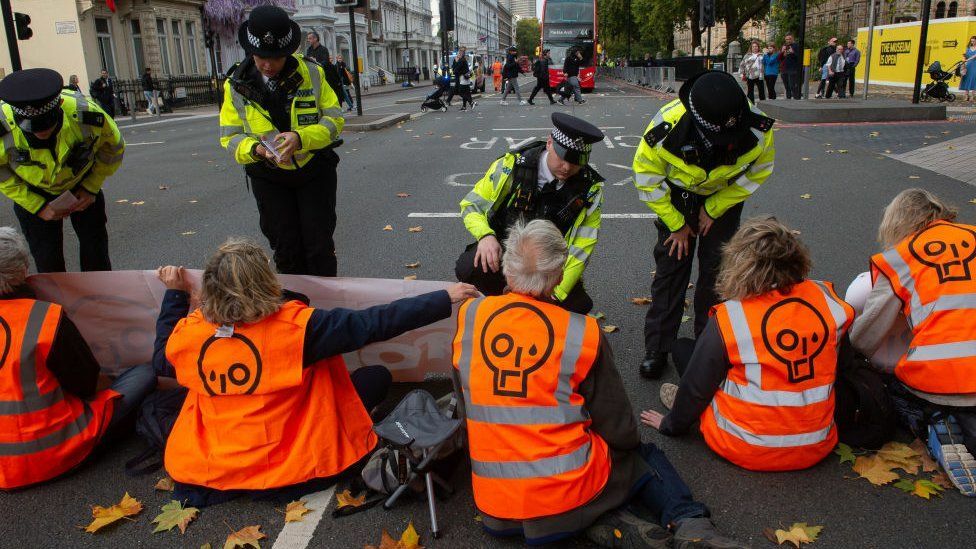New law grants police power to intervene in seriously disruptive protests

Parliament has approved a law granting police in England and Wales clearer authority to intervene in protests considered seriously disruptive. The House of Lords passed the new regulations, despite opposition from some peers. The law allows officers to take action when protesters attempt to block roads through slow marching, a tactic employed by groups such as Extinction Rebellion, Just Stop Oil, and Insulate Britain. This follows the enactment of the Public Order Act last month, aimed at enhancing police powers to manage disruptive protests.
The government argues that the new regulations are necessary due to a lack of clarity regarding existing police powers. The threshold for what constitutes “serious disruption” has been lowered. Home Secretary Suella Braverman stated that the impact of “disruptors” from certain protest groups has been “huge” and that “the police must be able to stop this happening”. However, critics view the measures as an attack on the right to protest and believe that the police already possess the ability to halt slow-walking demonstrations under current laws.
The regulations were supported by MPs in a vote on Monday, with 277 in favour and 217 against. In the House of Lords on Tuesday, some opposition peers attempted to prevent the regulations from becoming law through parliamentary manoeuvres. Ministers had previously tried to ban slow-walking protests by incorporating measures into the Public Order Act but were narrowly defeated by peers.
Baroness Jones, a Green peer, proposed a “fatal motion” to decline approval of the regulations, citing Parliament’s previous rejection. She described the law as “authoritarian” and accused it of handing power to decide what constitutes a good or bad protest to the police and the Home Office. Home Office minister Lord Sharpe labelled the motion “highly unusual” and claimed it sought “to strike down legislation passed by the elected House and undermine sensible changes, which bring clarity and consistency to the law”. The motion was unsuccessful, with peers voting against it by 68 votes to 154, a majority of 86.
Labour did not support the fatal motion, adhering to the convention of accepting the will of the elected House of Commons. However, peers backed a Labour “regret motion” criticising the regulations but not blocking them, by 177 votes to 141.
The police have faced significant pressure from politicians regarding protest management, particularly in response to recent actions by Just Stop Oil. The Public Order Act’s powers were deemed too crude and broad after the arrest of anti-monarchy protesters on King Charles’s Coronation day. The 2023 Public Order Act represents the government’s second major piece of legislation altering protest laws in under two years. In 2022, MPs voted to impose greater restrictions on public processions if deemed too noisy.
Latest Thailand News
Follow The Thaiger on Google News:


























